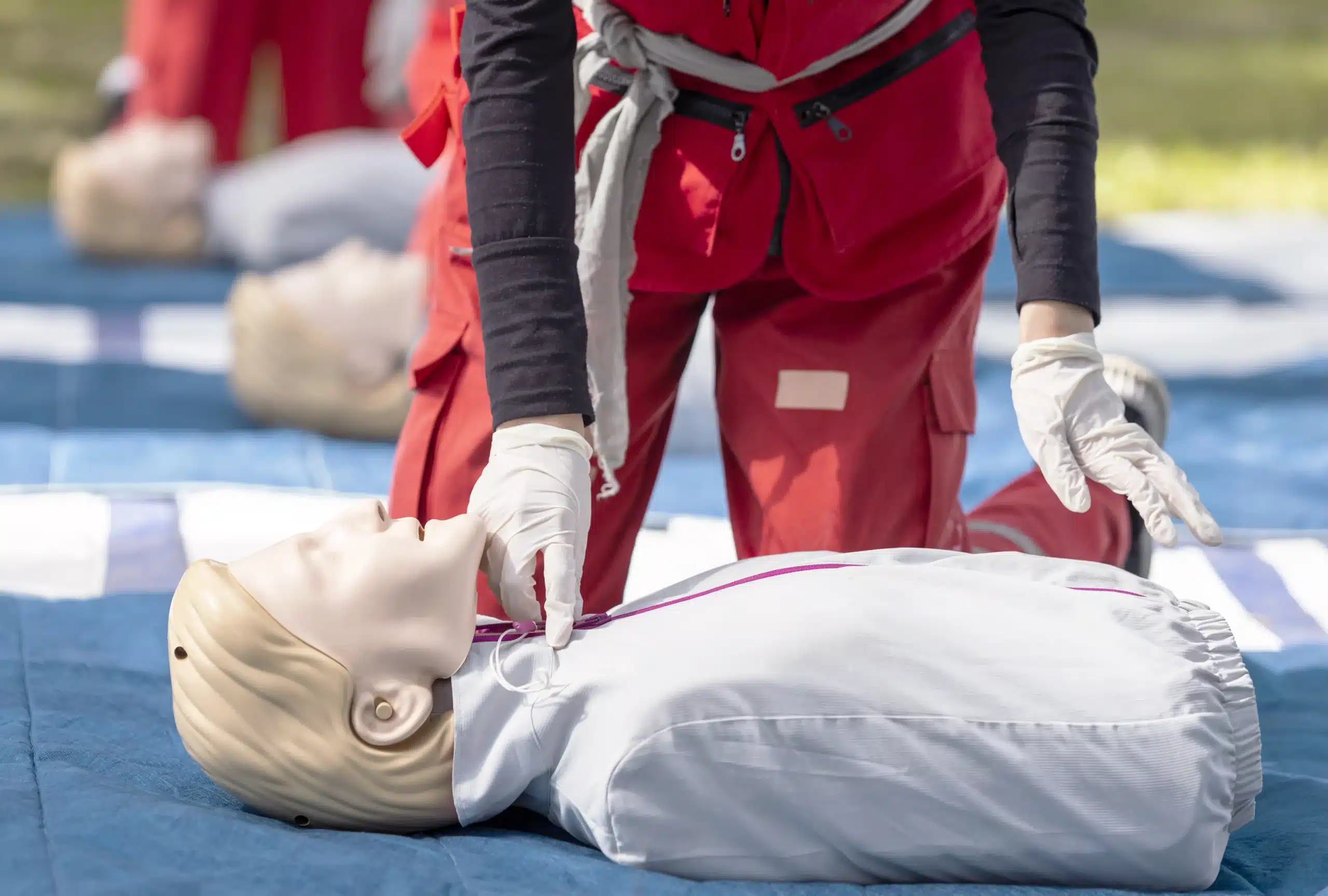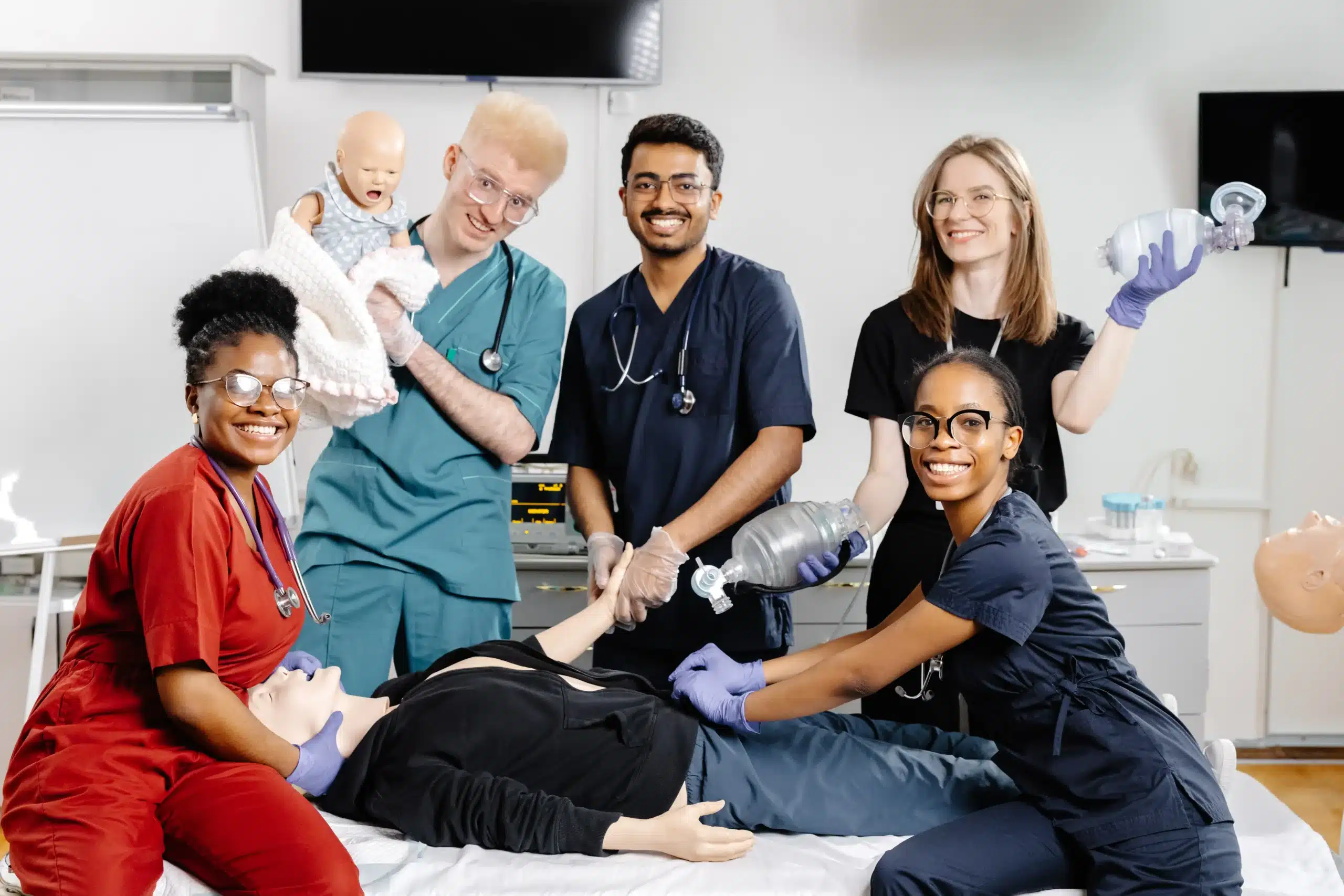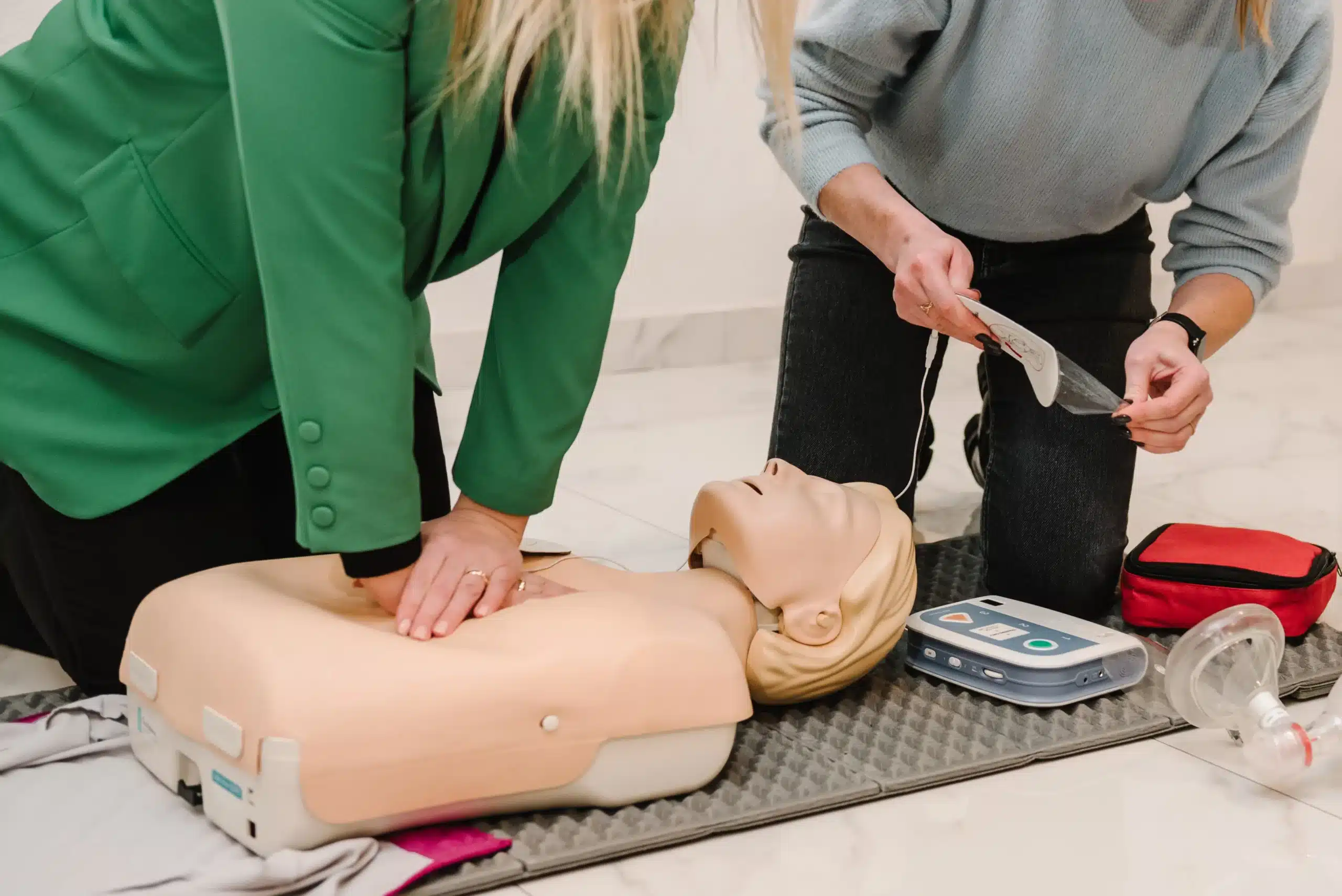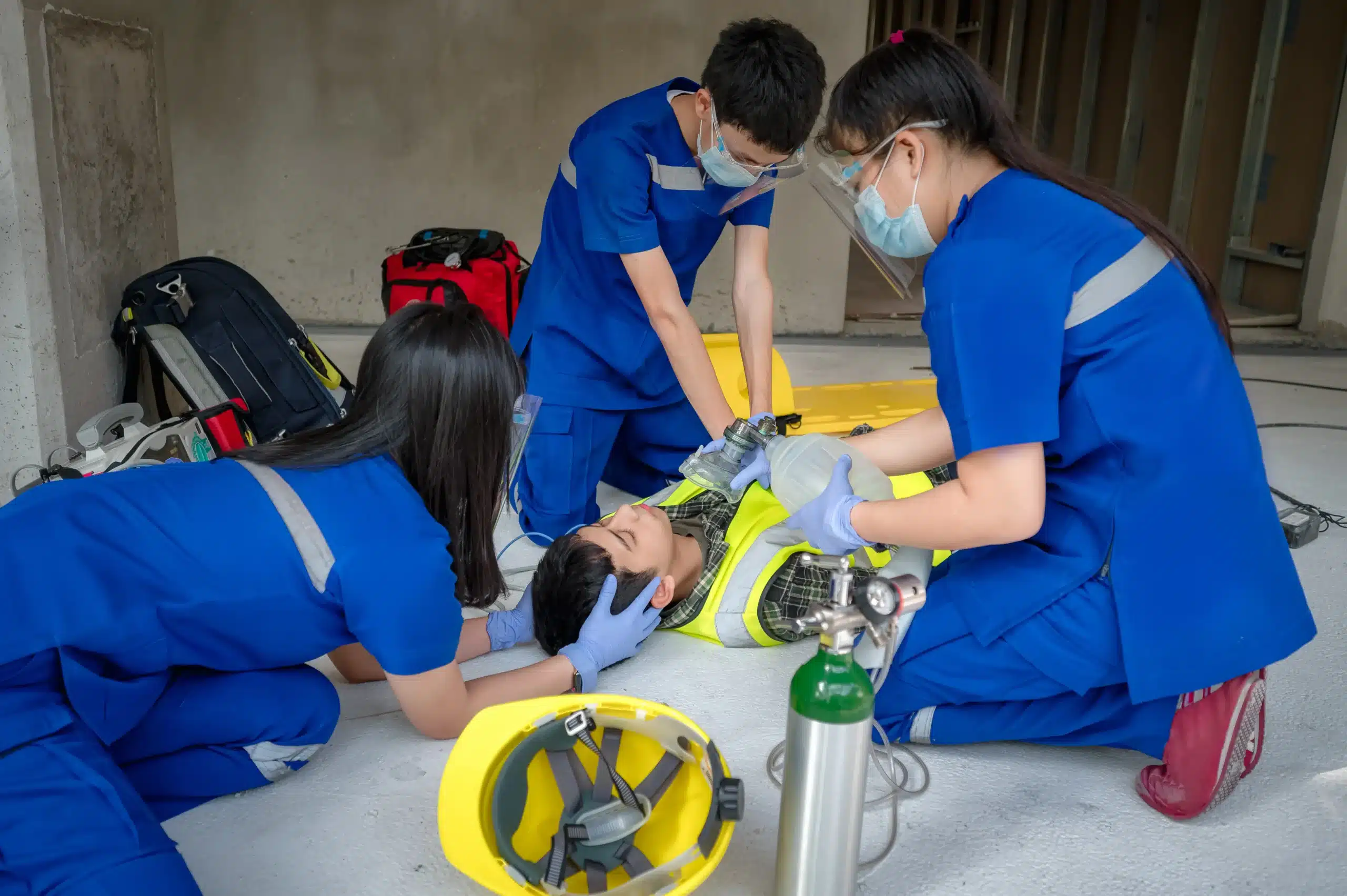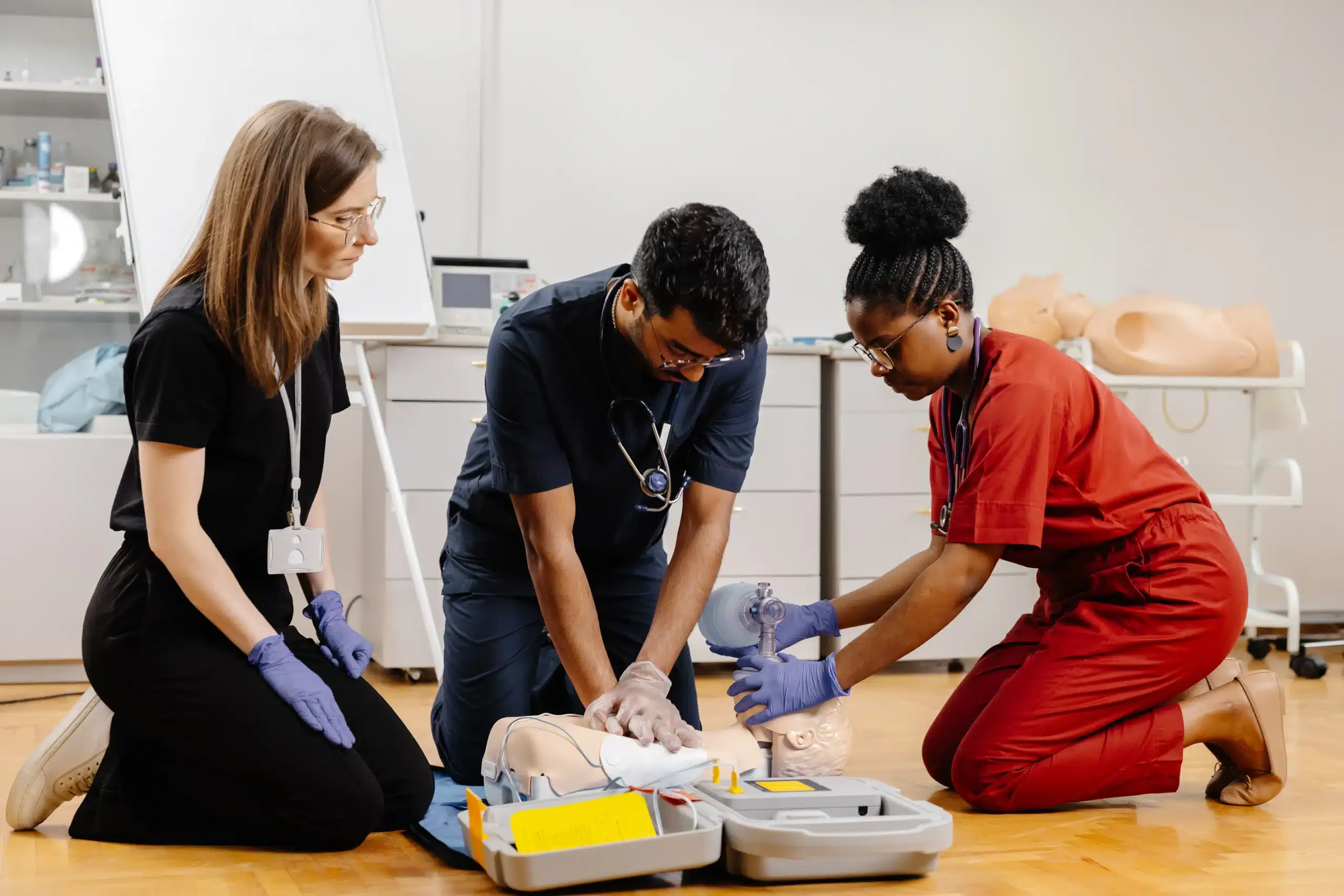Juggling work, family, and continuing education can feel overwhelming, especially in demanding healthcare fields. Finding a PALS certification course that fits your busy life shouldn’t add to the stress. HeartCode PALS in Brentwood offers a flexible, blended learning approach, combining online modules with hands-on skills sessions. This means you can learn essential pediatric life support techniques at your own pace, then practice those skills with expert instructors. This article breaks down everything you need to know about HeartCode PALS in Brentwood, from prerequisites and curriculum to cost and local providers. We’ll also explore the career advantages of PALS certification and how it empowers you to make a real difference in your community.
Key Takeaways
- HeartCode PALS blends online learning with hands-on skills: Study the course material at your own pace online, then solidify your knowledge with an in-person skills session. This flexible approach accommodates busy schedules while ensuring practical competency.
- PALS certification enhances your healthcare career: Demonstrate your commitment to pediatric care and gain a competitive edge in the job market. This credential signifies advanced knowledge and skills in managing pediatric emergencies.
- Find convenient and affordable PALS training in Brentwood: Access local resources, flexible scheduling, and potential group discounts through providers like Safety Training Seminars. Streamline your certification journey with their comprehensive support.
What is HeartCode PALS?
What is HeartCode PALS?
HeartCode® PALS is the American Heart Association’s (AHA) online blended learning course for Pediatric Advanced Life Support certification. This format combines online coursework with a hands-on skills session, so you can learn at your own speed and still get the practice you need. It’s a flexible and convenient way to earn or renew your PALS certification. The program covers essential information and skills for healthcare providers who respond to pediatric emergencies.
Blended Learning Features
HeartCode PALS uses a blended learning approach. This means you’ll complete part of the course online through interactive modules, and then attend an in-person skills session. The online portion uses adaptive learning technology, which adjusts to your learning pace and knowledge for a personalized experience. You can work through these online modules on your own time, from anywhere with an internet connection. After completing the online portion, you’ll schedule a hands-on skills session with an AHA instructor. This session focuses on practicing the skills you learned online, like CPR, using an infant manikin. This combination of online learning and hands-on practice ensures you’re fully prepared to respond to pediatric emergencies. For more information about PALS course options, visit the American Heart Association website.
HeartCode PALS vs. Traditional PALS
Choosing the right PALS course format is a big decision. Both the traditional classroom-based PALS and the HeartCode PALS blended learning program lead to the same certification, but their structures differ. Let’s explore the pros and cons of each, focusing on HeartCode PALS.
Online Component Benefits
HeartCode PALS offers a significant advantage: flexibility. The online portion lets you learn at your own speed, fitting the training around your busy schedule. This self-paced learning uses adaptive technology that adjusts to your performance. If you’re struggling with a concept, the program gives you extra support. If you’re grasping it quickly, you can move ahead efficiently. This personalized approach can make learning more effective and less stressful. Plus, the online modules use real-world scenarios, helping you connect the material to actual clinical practice.
Hands-On Skills Session Advantages
While the online component offers flexibility, HeartCode PALS isn’t entirely online. It’s a blended learning program, which means it combines online learning with a required hands-on skills session. This in-person component is crucial for mastering the practical skills needed for pediatric emergencies. During this session, you’ll work with an AHA instructor or a voice-assisted manikin. You’ll be tested on your child and infant Basic Life Support (BLS) skills and may also be tested on case scenarios. This practical experience connects theory and practice, ensuring you’re fully prepared to respond confidently in a real emergency. The hands-on portion typically takes about five hours, including breaks.
Find HeartCode PALS in Brentwood: Locations & Schedules
Finding the right HeartCode PALS course that fits your schedule and location is essential. Here’s a breakdown of providers and options in Brentwood:
Safety Training Seminars
Safety Training Seminars offers American Heart Association certified courses in Brentwood and throughout Northern California, covering over 45 cities. They provide a range of courses, including CPR, BLS, ACLS, PALS, NRP, EMSA, and First Aid. This makes them a convenient option for all your certification needs. Check their website for specific HeartCode PALS course availability in Brentwood.
Flexible Scheduling
One of the advantages of choosing a provider like Safety Training Seminars is the flexible course scheduling. Classes are available every day of the week, including weekends, making it easier to fit the training into your busy schedule. You’ll receive your official American Heart Association certification card the same day you complete your training.
Other Local Providers
Brentwood CPR Classes offers the blended learning format of HeartCode PALS, combining online learning with a hands-on skills session. This course typically involves 3–4 hours of online coursework followed by a 30–40 minute skills evaluation at a local testing center. The cost is $290, which covers both the online and in-person components. Be sure to check their website for the most up-to-date schedule and pricing. You can also explore our Northern California CPR directory for additional training centers in the area.
HeartCode PALS Cost in Brentwood
Course Fees & Inclusions
The HeartCode PALS course in Brentwood offers a blended learning experience, combining online coursework with a hands-on skills session. The online portion typically requires 3–4 hours, followed by a brief 30–40 minute skills check at a local testing center. The total cost for the HeartCode PALS certification through Safety Training Seminars is $290, and you’ll receive your certification card the same day you complete both portions. This combined approach ensures you develop both the knowledge and practical skills necessary for pediatric advanced life support. For more details on the PALS course, visit the AHA PALS page on the Brentwood CPR Classes website.
Discounts & Promotions
Looking to make your training more affordable? The American Heart Association offers competitive pricing for their HeartCode PALS course. Organizations needing to certify multiple staff members should inquire about group discounts—Safety Training Seminars offers discounted rates for larger groups. Local providers in Brentwood also frequently advertise competitive rates and even offer price matching, so it’s worth checking around to ensure you get the best possible price. You can explore other CPR training resources in Northern California using our CPR directory.
HeartCode PALS Prerequisites
Required Certifications & Experience
To successfully complete the HeartCode PALS course, you’ll need a solid foundation in basic life support. The American Heart Association requires demonstrated competency in child and infant basic life support (BLS). It’s like building a house—you need a strong foundation before you add the walls and roof. Similarly, PALS builds upon your BLS skills, adding advanced techniques for pediatric emergencies. After you finish the online portion of HeartCode PALS, you must complete a hands-on skills session with an AHA Instructor or using a voice-assisted manikin. This in-person component is essential to apply your knowledge in a realistic setting and receive your PALS certification. The hands-on session typically takes about five hours, including breaks.
Pre-Course Prep Tips
Want to feel confident walking into your HeartCode PALS course? Take the pre-course self-assessment to get a feel for the material. This assessment covers key areas like ECG recognition and pharmacology, giving you a preview of the concepts you’ll encounter. The AHA also recommends familiarizing yourself with three key learning stations: Respiratory, Rhythm Disturbances, and Vascular Access. While testing at these stations isn’t mandatory, practicing with them can significantly improve your understanding and performance during the course. Think of it as a dress rehearsal before the main performance!
Career Benefits of PALS Certification
Holding a PALS certification opens doors in the healthcare field. It demonstrates a commitment to high-quality patient care and provides a foundation for career growth. Whether you’re a seasoned professional or just starting out, PALS certification offers tangible benefits.
Improved Emergency Response
PALS certification equips you with the skills to confidently manage pediatric emergencies. The training emphasizes a systematic approach to assessment, intervention, and stabilization, enabling you to provide effective care during critical moments. This preparedness not only benefits your patients but also fosters a more confident and effective work environment. Medtigo emphasizes how PALS equips providers with the knowledge and skills to make a real impact in pediatric emergencies. For more information on the importance of PALS certification and the flexible learning options available, check out this introduction to online learning.
Career Advancement
A PALS certification can be a significant stepping stone in your healthcare career. Many employers seek out PALS-certified professionals, especially for roles involving direct patient care. This certification can give you a competitive edge when applying for jobs or seeking promotions. It signals your dedication to professional development and your ability to handle complex medical situations. Comfikare CPR highlights how PALS training enhances confidence and competence in managing pediatric emergencies, ultimately improving teamwork, communication, and the early recognition of deteriorating conditions.
Continuing Education Credits
Maintaining your PALS certification involves staying up-to-date with the latest guidelines and best practices. The HeartCode PALS program offers continuing education credits, often required for license renewal, demonstrating your ongoing commitment to professional development. This FAQ document details how the online portion of HeartCode PALS can provide up to 11 hours of continuing education credit. These credits are essential for maintaining your licensure and staying current in the ever-evolving field of healthcare.
Inside the HeartCode PALS Curriculum
This section breaks down the HeartCode PALS course components, from online modules to hands-on practice. Understanding the curriculum helps you prepare and make the most of your training.
Online Learning Modules
HeartCode PALS begins with interactive online learning modules. These aren’t static lessons—the program uses an adaptive algorithm to personalize your learning experience. This means your learning path adapts to your responses and self-assessed confidence levels. The algorithm ensures you focus on areas where you need more practice and quickly move through concepts you’ve already mastered. This efficient approach helps you achieve PALS mastery at your own pace.
Patient Scenarios & eSimulation
The online portion of HeartCode PALS features twelve interactive pediatric hospital scenarios using eSimulation technology. These realistic scenarios go beyond basic knowledge checks. They test your understanding of the PALS algorithms, rhythm recognition, and pharmacology in dynamic, simulated patient situations. You’ll apply your knowledge and decision-making skills in a safe, virtual environment before facing real-world emergencies.
Skills Session Overview
After completing the online modules, you’ll move to a hands-on skills session with an American Heart Association instructor or a voice-assisted manikin. This session typically lasts around five hours with breaks, or slightly less without. This in-person component allows you to practice essential skills like CPR, intubation, and vascular access on specialized training equipment. The hands-on session bridges the gap between virtual learning and real-world application, ensuring you’re fully prepared to respond to pediatric emergencies.
Succeed in HeartCode PALS
Time Management for Online Learning
The online portion of the PALS HeartCode course offers flexibility, but effective time management is essential. Treat the online modules like any other important appointment. Schedule dedicated study blocks, free from distractions. Breaking the content into smaller, manageable chunks can make the process less overwhelming and improve knowledge retention. The HeartCode PALS program uses real-world scenarios to make learning efficient and applicable. Remember, online learning offers a personalized pace—take advantage of it!
Skills Session Prep
Preparation is crucial for a successful skills session. Before attending, review the key algorithms and procedures from the online modules. You’ll be tested on your child and infant basic life support (BLS) skills, so refresh those techniques. The skills session also includes practice and participation in learning stations focusing on respiratory issues, rhythm disturbances, and vascular access. While testing on these specific case scenarios might be optional, practicing them beforehand will build your confidence and competence. Review the HeartCode PALS FAQs from the American Heart Association for more details about the skills session.
HeartCode PALS Misconceptions
Several misconceptions surround PALS certification. Some believe it’s only for hospital or emergency department staff. In reality, PALS certification equips anyone working with children—healthcare providers, childcare professionals, camp counselors, school nurses—with life-saving skills. Another misconception is that PALS is the same as basic life support (BLS). While BLS is foundational, PALS training builds upon those basics, covering more complex pediatric emergencies. Finally, some experienced healthcare providers assume they don’t need PALS training. However, regular PALS certification ensures even seasoned professionals stay current with the latest guidelines and best practices.
Renew Your PALS Certification
Certification Validity
PALS (Pediatric Advanced Life Support) certification is essential for healthcare professionals responding to emergencies involving children. Your American Heart Association PALS certification is valid for two years. Renewal is required to ensure you stay up-to-date with the latest guidelines and best practices in pediatric care. After successfully completing the online and hands-on portions of the course, you’ll receive a PALS course completion card to verify your certification. Learn more about our AHA PALS classes in Brentwood, CA.
Recertification Steps
Maintaining your PALS certification requires a recertification process similar to the initial certification, including online and hands-on training. The American Heart Association offers several PALS course options. After finishing the online portion, often called HeartCode® PALS, you’ll participate in a hands-on skills session with an AHA Instructor or a Voice-Assisted Manikin. This session focuses on evaluating your skills in critical areas, including child and infant basic life support (BLS). Plan for about five hours for the hands-on portion, including breaks.
Why Choose HeartCode PALS in Brentwood?
Choosing the right PALS certification course is a big decision, especially for something as important as pediatric care. HeartCode PALS, offered in Brentwood, is a great option, blending online convenience with essential hands-on practice. Let’s explore why it’s a smart choice for local healthcare providers.
Local Healthcare Needs
PALS certification is essential for healthcare professionals working with children in Brentwood, Antioch, and Concord. Our community hospitals and clinics constantly handle pediatric emergencies. Having PALS-certified professionals ensures our children receive the best possible care when they need it most. This certification equips providers with the skills to manage respiratory emergencies and cardiac events, directly impacting the quality of pediatric care locally. The demand for qualified PALS providers continues to grow, making this certification valuable for both professionals and the community.
Support from Safety Training Seminars
Safety Training Seminars offers comprehensive American Heart Association courses right here in Brentwood. They provide a supportive learning environment with experienced instructors who understand the challenges of working in pediatric care. They also offer BLS, ACLS, and First Aid training, making it convenient to get all your certifications in one place. For added value, explore their discount group class options.
Community Impact
Becoming PALS certified isn’t just about checking a box; it’s about making a real difference. Completing PALS training increases providers’ confidence and competence in handling pediatric emergencies. This results in better outcomes for children in our community. Knowing skilled professionals are ready to respond provides peace of mind for families and strengthens our local healthcare system. It’s a ripple effect, starting with your certification and extending to the well-being of our community.
Related Articles
- AHA PALS Classes in Brentwood, CA – Brentwood CPR Classes
- BLS ACLS PALS Training: Your Ultimate Guide – Brentwood CPR Classes
- American Heart Association Course – Brentwood CPR Classes
- Brentwood CPR Classes: Your Complete Guide – Brentwood CPR Classes
- CPR Classes in Brentwood, CA
Frequently Asked Questions
What exactly does the HeartCode PALS blended learning format entail? HeartCode PALS combines online learning with a required in-person skills session. You’ll work through interactive modules online at your own pace, then attend a hands-on session with an AHA instructor to practice your skills and demonstrate competency. This approach offers flexibility while ensuring you gain practical experience.
How does HeartCode PALS differ from a traditional PALS course? Traditional PALS courses take place entirely in a classroom setting, led by an instructor. HeartCode PALS allows you to complete the coursework online at your convenience, offering greater flexibility for busy schedules. Both formats include a hands-on skills check and lead to the same AHA certification.
If I take HeartCode PALS, where can I find a skills session location in Brentwood? Safety Training Seminars in Brentwood offers skills sessions for HeartCode PALS, along with other AHA courses. Check their website for schedules and availability. You can also consult our Northern California CPR directory for additional training centers in the area.
What are the prerequisites for taking HeartCode PALS? You must have current certification in child and infant BLS (Basic Life Support) before taking HeartCode PALS. It’s also recommended to take the pre-course self-assessment and familiarize yourself with the learning stations related to respiratory issues, rhythm disturbances, and vascular access.
How long is the PALS certification valid, and how do I renew it? PALS certification is valid for two years. To renew, you’ll need to retake the course, which includes both the online modules and the hands-on skills session. The renewal process ensures you stay current with the latest AHA guidelines and maintain your skills.


